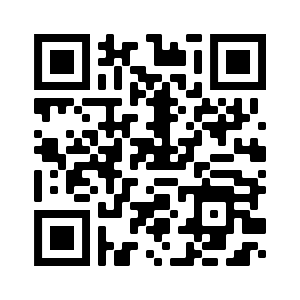With the imminent contamination threat of the Coronavirus (COVID-19), companies around the world are increasingly adopting a remote work model to prevent further spread and protect their employees.
As few companies previously had procedures in place to handle an immediate shift to remote, many companies are struggling to adopt the work-from-home stance. However, companies like Andela, a 6 year old global engineering as a service business that helps companies build teams quickly and cost effectively, have their entire business model based on remote teams since inception. and can therefore shed a lot of light on myths, concerns and misconceptions about remote workforces.
This revolutionary shift in the office work environment, although seen by some as a temporary containment measure, experts say this is more likely to become the norm. Studies show that 5x as many hiring managers expect more of their team to work remotely in the next 10 years than less, and in the next 10 years, hiring managers predict that 38% of their full-time, permanent employees will work predominantly remotely.
And this is what Andela has been successfully doing for the past 5+ years, managing over 1000 employees working across distributed teams in different countries proving that remote work is not only the future, but also an effective work model to deploy.
This concept, however, isn’t really the understood norm, and other companies, in light of the current covid-19 situation, are left confused on how to achieve the balance of working remotely vs productivity.
As an entity that is built around remote work, we can give you a few tips from our experience through the years on how to dispel the negative assumptions and sustain your day-to-day tasks without a shred of doubt from either employees or employers.
According to Rama El Safty, Andela Egypt’s Country Director, the first few tips for the employers would be:
● Plan: Take the lead! Put together a plan of the tools you’ll need for communication and collaboration, the systems to follow and other protocols required for setting up a remote system.
● Communicate: Next, have an initial talk to reassure your employees and share your plan with them. The more prepared you will appear to be, the more trust your employees will have in the plan. This is a crucial point to offset any fears or worries that they might have.
● Check up: Once deployed, make sure that your team has all the necessary tools to communicate and work efficiently from wherever they may be.
● Check In: Your employees should not get a sense of abandonment during the official working hours. Be responsive on all your communication platforms and check in with them frequently, just as you would in the physical office.
● Praise: Remember to give credit where it is due. Empowering your employees during these difficult circumstances will show them that you are aware of the sacrifices they are making and encourage them to maintain the protocols and ethics of the plan.
Employees need to understand that without their cooperation, working remotely can be very difficult to manage and efficiency is important at this time. For employees, Rama advises to:
● Communicate: You need to be proactive more than ever when working from home. Voice out any issues you may be facing to pre-empt any risks you foresee, make sure all team members are on the same page through real time messaging and inform your manager regularly of the progress of your work. With proactive and frequent communication, your dedication and productivity will be evident. .
● Setup: Create a space that will be your dedicated workspace. You can also build a small off-site desk and make it your office. Pick a quiet spot with low house-traffic, good lighting and a strong Internet and GSM connection. This will make it easier to return to the same spot for your daily 9 to 5, rather than having to roam around and perform multiple comfort versus efficiency tests.
● Stay Visible: Whether it is on group communication platforms or video calls, you need to maximize your visibility. When having video calls, make sure your camera is on. This helps others to connect with you and avoids you being distracted by other activities. Give your undivided attention as you would at the office.
● Be accountable: Let others especially your manager know when you start working and when you stop working. Don’t work a full day in total silence, send daily updates via your company’s preferred communications tool. Offer a summary of what you have done at the end of each day or every other day. This will help to demystify the situation.
● Understand: These times are as hard for you as they are for your boss. Nothing is stable and human interaction has always been taken for granted. Everyone is trying to evolve and adapt to the change. Try to be understanding towards your management as they have a huge responsibility to keep you safe and keep the business going at the same time.
Many teams around the world are now working from home and for many people this is the first time doing so. The tips for remote work above are based on Andela’s experience of managing people and businesses that may be worlds apart both culturally and geographically.
Andela believes that great remote work practices are great business practices. So don’t be surprised if you find that your team’s productivity increases, collaboration improves, and your culture is stronger even after the pandemic threat has passed.










































































